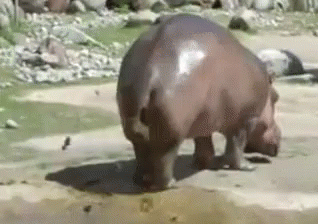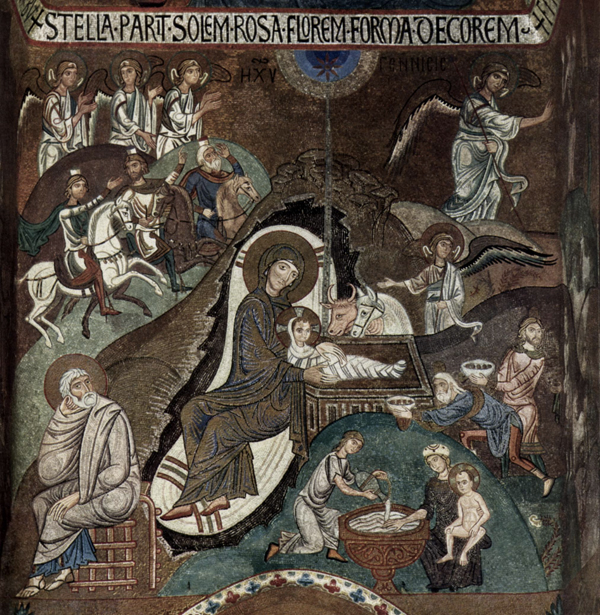I grew up watching "Speed Racer," the Japanese animé series, as a kid in the 1970s. When the Wachowskis, fresh off their Matrix trilogy, decided to film a live-action-ish version of the cartoon, I was genuinely confused as to why. The Wachowskis tended to be cerebral types, not unlike the Coen brothers. They enjoyed deep themes and intriguing issues—ethical dilemmas and philosophical posers—so why on Earth would they want to focus their creative energies on a kids' cartoon? I obviously didn't and don't understand the Wachowskis; they move to the beat of their own drummer, and in 2008, "Speed Racer" was the result of their creative impulses, like it or not. Now that I've seen the movie, I vote not.
2008's "Speed Racer" is directed by the duo now known only as The Wachowskis.* (They used to be The Wachowski Brothers, Larry and Andy. They are now trans women: Lana and Lilly.) It stars Emile Hirsch, Christina Ricci, John Goodman, Susan Sarandon, Matthew Fox, Roger Allam, Benno Fürmann, Hiroyuki Sanada, Rain, and Richard Roundtree. The basic story revolves around the Racer family, led by Pops (Goodman), who have devoted their lives to auto racing. The Racer family runs its own independent outfit, not reliant on any corporate sponsorship, but when teenaged Speed Racer (Hirsch) is approached by mega-tycoon EP Arnold Royalton (Allam) and tempted with riches beyond his wildest imaginings, Speed declines Royalton's offer, thus earning the mogul's enmity. A strongly anti-corporatist theme runs throughout the movie: rich people and their corporations are the Devil, and money has sucked all the purity and fun out of racing, turning it into a dirty business where bribes are made, families are threatened, and outcomes are rigged well in advance.
Speed is shown to have a history: as a kid, he worshiped his older brother Rex (initially played by Scott Porter), a world-class driver. When Rex apparently dies in a crash during a cross-country event, the Racer family is plunged into depression, but Pops eventually snaps out of it when he rewatches old footage of a former racing champion, Ben Burns (Roundtree), during the '43 Grand Prix. Inspired by Burns's victory, Pops gets back to work designing cars, and Speed spends his days essentially chasing after the ghost of his big brother. Speed gets help from Mom (Sarandon), his little brother Spritle (Paulie Litt), his girlfriend-since-boyhood Trixie (Ricci), and even a chimpanzee named Chim-Chim. A mysterious driver nicknamed Racer X (Fox) appears and helps the Racer family deal with the wrath of Royalton, and Speed starts to suspect that Racer X is actually his older brother Rex. A side story involving a rich Japanese racing family allows the movie to bring in ninjas, martial arts, and a convoluted plot.
"Speed Racer" proved disappointing, off-putting, and even boring. One essential problem for me was the way in which the main ethical dilemma of the movie wasn't a dilemma at all: Speed's temptation by Royalton to rake in millions as part of a huge, soulless corporation. Speed proved to be too pure and honorable to accept Royalton's offer, and Royalton, in turn, proved to be a flat character: obviously evil from the outset, showing his true colors to Speed the very moment that Speed refused to sign Royalton's contract. Another problem was how insanely CGI-driven the effects were: images come at you in a full-frontal assault, with constantly whipping camera angles and overly stylish smash cuts from one character to the next, all attempting to reflect the spirit of the original animé. A movie this cartoonish might be great fun for kids (and this is, undoubtedly, a kids' movie first and foremost), but the lack of real suspense is going to leave the adults in the audience feeling empty. The film's flashy, cotton-candy palette emphasized the style-over-substance nature of the story, and the painfully corny dialogue, which tried so hard to be funny, constantly fell flat. The result was an insipid narrative gruel. I found it very hard to care for any of the main characters, and that's entirely the fault of the flaccid script, which wanted to devote more time to racing than to character development. A shame, that: intra-familial conflict would have added depth to the story; Royalton could have been the source of a rift between Speed and his father, but instead, the dad/son conflict came via the contrived subplot involving the Japanese racing family, the strangely surnamed Togokahns. (Note: Korean actor-singer Rain plays scion Taejo Togokahn; when the Togokahn logo is shown, the script under the logo is Korean, not Japanese. Note, too, that Togokahn isn't a plausibly Japanese surname.)
The acting wasn't always on point, either. John Goodman and Susan Sarandon did the best they could with the lines they were given, but Emile Hirsch—whom I consider a fine actor—came off as a discount Hayden Christensen in this movie: wooden and unapproachable. Rain's Taejo was fairly poorly acted, and Paulie Litt as Spritle was, alas, positively awful as child actors go. Only Roger Allam, as the evil Royalton, seemed to be having any fun in his role; Allam has been quoted as saying he modeled his performance on the behavior of thinker and cultural critic Christopher Hitchens at his most pugnacious. (There's even a physical resemblance between Allam and Hitchens, pre-cancer. To be honest, I would never have made the Allam-Hitchens connection had I not stumbled upon that interview quote, but once that connection was made known, it was impossible to un-see.) Part of the problem with the acting might not have been the actors so much as the directors, who I gather were aiming for something deliberately overwrought and corny. For the kids, you see.
A better story, a real sense of danger, and more fleshed-out characters (I feel especially sorry for Ricci's Trixie) would have made this a much better movie. I've heard that, over the years since 2008, "Speed Racer" has gone from being considered a box-office turd to being praised as a cult classic, but to be honest, I just don't see it. It strikes me as the kind of movie you enjoy when you're maybe six years old, then you cringe at the memory of liking it when you're sixteen. All in all, "Speed Racer" felt like a race car uselessly spinning its wheels.
*It's pronounced "wuh-CHOW-skee," not "wuh-KOW-skee."















































